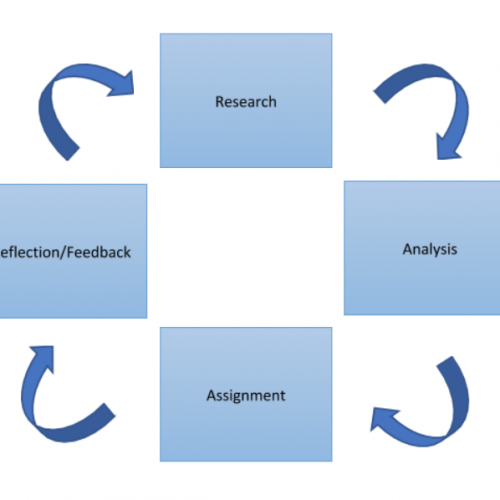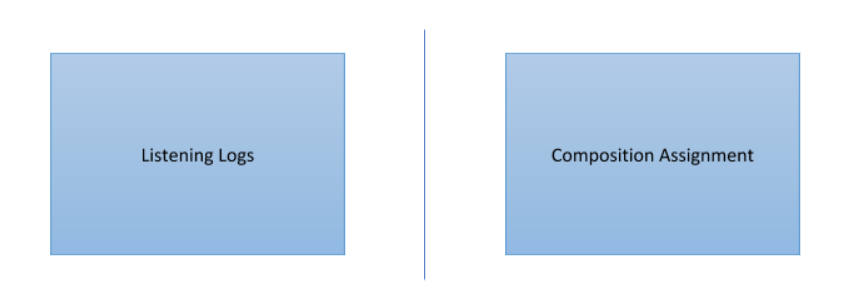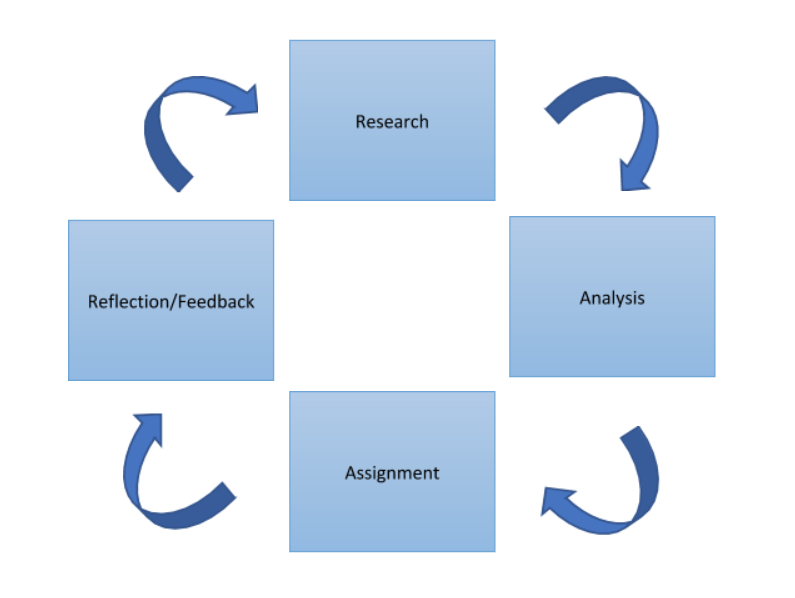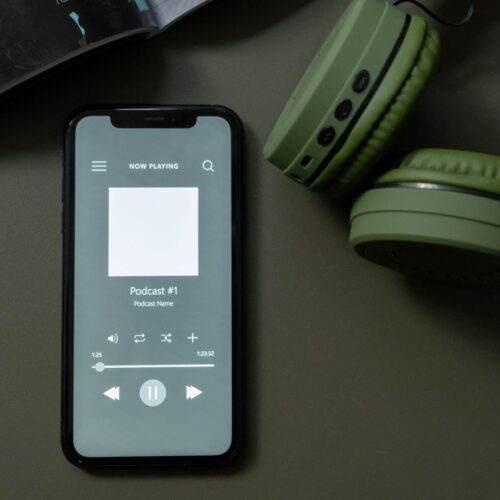
Writing on music: Research and reflection
Research is an essential part of the music degree, and appears in various guises throughout all modules. Research points, essays, listening logs etc. all require the student to engage in some kind of research.
It is easy to think of the research components and the assignment as two separate entities, both of which must be completed, and sent to your tutor for feedback. This is particularly common when the assignment is practical in nature (e.g. composition):

However, it is important to consider research as preparation for the assignment:

For example, rather than considering listening logs as an ancillary component (perhaps, even a distraction), instead think of them as an essential starting point. If the course materials instruct you to compose a solo piece for an assignment, your listening log should contain a number of solo works, featuring the music of an array of composers. As part of the log, you can comment on each solo work, analyse it, provide a personal response, and use this to inform the composition:

In the above example, rather than the listening logs functioning as an additional component, they now form a crucial part of composition preparation.
Many assignments also require the student to engage in critical reflection; commenting on how successfully they believe their essay or composition fulfilled the criteria. Again, it is easy to think of this as an unnecessary, additional component but it is an essential part of academic study:

Research is undertaken, and the analysis of this informs the assignment. The student reflects on the assignment, and receives feedback from their tutor. This then helps guide what research should be undertaken for the next assignment. The cycle continues. For example:
- Research – I examine Messiaen’s use of harmony.
- Analysis – I particularly like his use of isorhythms, and decide to employ that technique in my next composition.
- Assignment – I compose a piece of music that includes isorhythms.
- Reflection/Feedback – I am mostly happy with the piece, but I feel it’s a bit boring. My tutor explains how the isorhythm would have been more successful if I had used more complex, unpredictable rhythms.
- Research – I examine Messiaen’s use of rhythm.
- Analysis – I find his non-retrogradable rhythms to be particularly exciting, and decide they might make my isorhythms more interesting.
- Assignment – I compose a piece of music that includes both non-retrogradable rhythms and isorhythms.
- Reflection/Feedback – I feel that this is a much more successful piece. My tutor agrees, but thinks that I need to work on my structure and understanding of how climaxes work.
- Research – I fill my Listening Log with pieces that I believe are particularly climactic, dramatic, and possess an interesting structure.
- Etc.
Try to think of your research, reflections, and assignments as being of equal importance. They all feed into one another; progress in one area will usually lead to progress in another.
|
|






